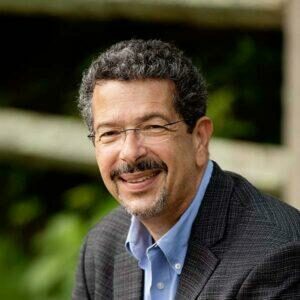
Bob Emiliani
"Your industry experience, research, and uncommon perspectives are remarkable." - Kathryn B.
"Your insights as always are very action (not just thought) provoking." - Dave B.
"One of the brightest and most subversive minds." - Bruno V.
View Bob's endorsements, biography, and resume.
M.L. "Bob" Emiliani is an engineer, researcher, writer, teacher, and trainer. Dr. Emiliani worked in industry for 15 years and had management responsibility in engineering (R&D, new product development) and operations (manufacturing and supply chain). Subsequently, he was full-time professor for 23 years teaching graduate and undergraduate courses in leadership, strategy failure analysis, supply chain management, the history of progressive management, entrepreneurship, and research methods. He now holds the honorary title of Professor Emeritus.
Dr. Emiliani is a versatile and prolific author whose work spans three disciplines: engineering, social sciences, and humanities. He has authored or co-authored over 40 peer-reviewed papers in six different subject areas (leadership, management, management history, supply chain management, higher education, and materials engineering) and is the author or co-author of 28 books. Dr. Emiliani earned a Ph.D. in Engineering from Brown University, an M.S. degree in Chemical Engineering from the University of Rhode Island, and a B.S. degree in Mechanical Engineering (double major in Applied Mathematics) from the University of Miami. In his youth he was a photographer and bicycle frame builder. Subsequent to that he was a visual artist (painting) and musician (bass guitar).
Creator of Speed Leadership and Strategy Failure Analysis Method
15 years of industry work experience and 23 years of academic experience
Experienced engineering, operations, and supply chain leader
Author or co-author of 28 books, 45 papers, and more than 700 blog posts
20+ years of executive training and corporate speaking experience
Creator of the Lean Teaching pedagogy for higher education
"Knowledge, experience, thought, the vehemence of criticism, cannot be stopped. Not only have you expressed your sharp mind in your books, you have done it in every forum, in every message. You have inspired thousands, I am a humble follower. You have planted ideas in my mind that have revolutionized my own learning and concepts.Your legacy is very great, it will continue to transcend in the multiple ways that you decide to undertake and will continue to be an object of study and analysis for this and future generations." - Olivia G.
About Cubic, LLC
Cubic LLC is a teaching, training, and publishing corporation whose mission is to improve the practice of leadership and management.
Better Leadership by Design®, Lean Behaviors®, Behavioral Waste®, Lean Teaching®, and the Genuine Lean Management® logo are are registered trademarks of Cubic LLC. These trademarks may be available for licensing.
Copyrighted words, images, presentations, videos, book excerpts, blog posts, etc. are available for licensing. Contact Bob Emiliani for details.
